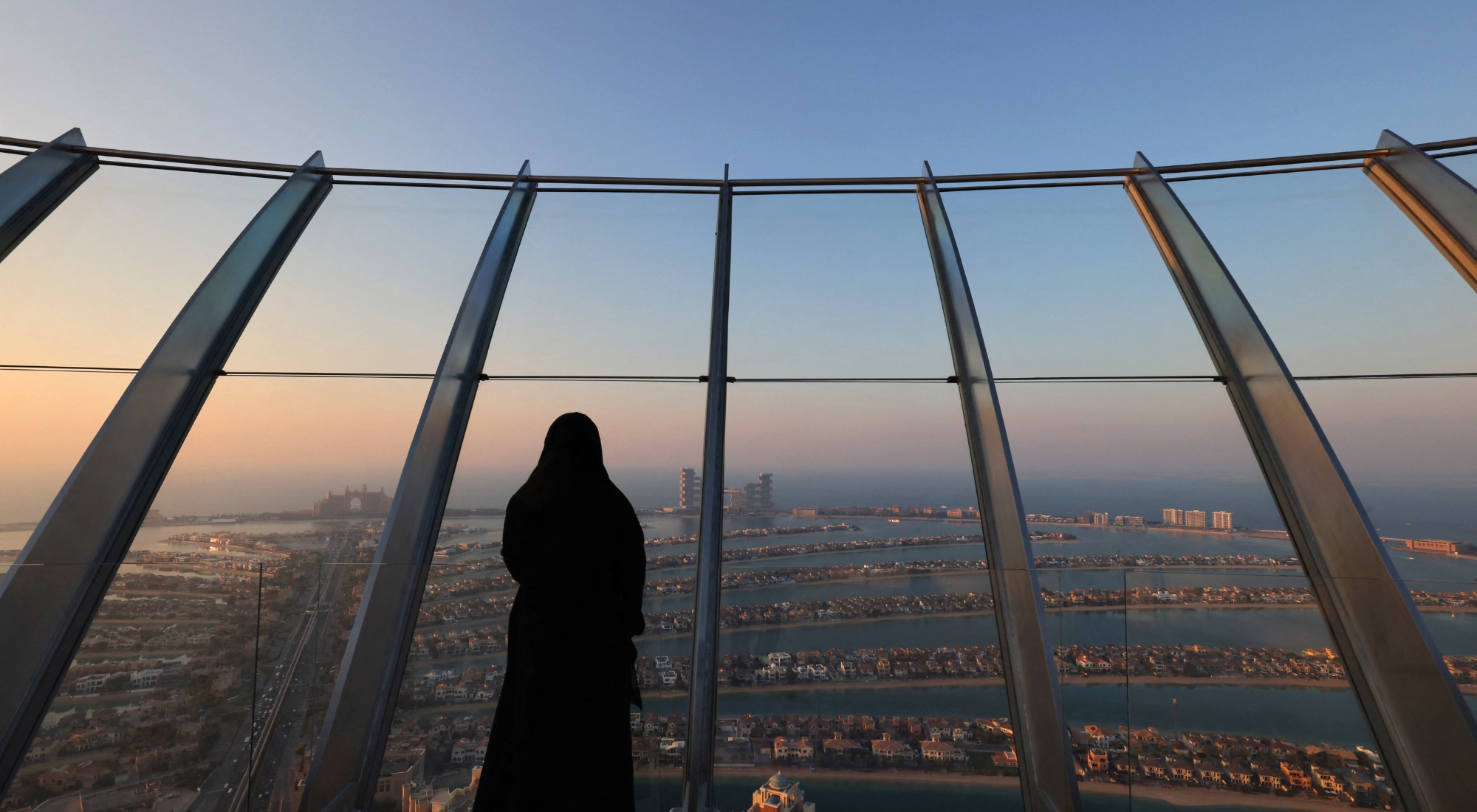This year, the state host for the 28th Conference of Parties (COP28) of the United Nations Framework Convention on Climate Change (UNFCCC) is the United Arab Emirates (UAE).1 To have a successful COP28 UAE that takes humanity off the path of climate crisis, the conference requires open civic space for criticism and the free exchange of views. That includes not only the views of parties to the convention but also those of activists for climate justice and human rights, both local and international.
This briefing presents Amnesty International’s concerns about the UAE’s human rights record with recommendations to the UAE government on steps it can take to remedy existing violations and hold COP28 in an environment that respects human rights for all.
UNFCCC parties wishing to ensure that the conference is not overshadowed by the UAE’s problematic human rights record, should urge the government to take steps ahead of COP28 UAE for human rights change. As a first step, Amnesty International is calling for the release of Ahmed Mansoor and other prisoners of conscience.
The Emirati president-designate of COP28 UAE,2 Sultan Al Jaber, has said that, as COP28 host, the UAE will “take an inclusive approach that engages all stakeholders from the public and private sectors”, including “civil society”, as “constructive dialogue must be at the forefront of our progress”.3
However, since 2011 the UAE has become a closed space for civil society, with laws that criminalize peaceful dissent through expression, association or peaceful assembly and the imprisonment of dozens of Emirati dissidents.
The UAE also has a poor record on issues including the right to privacy, workers’ rights, women’s rights and sexual rights, in addition to its continued promotion of fossil fuel extraction and involvement in grave violations in the armed conflicts in Yemen and Libya.
Human rights and climate justice are interdependent, and a COP28 UAE that delivers on states parties’ human rights obligations requires action now to ensure that the conference takes place in an inclusive environment free from fear.
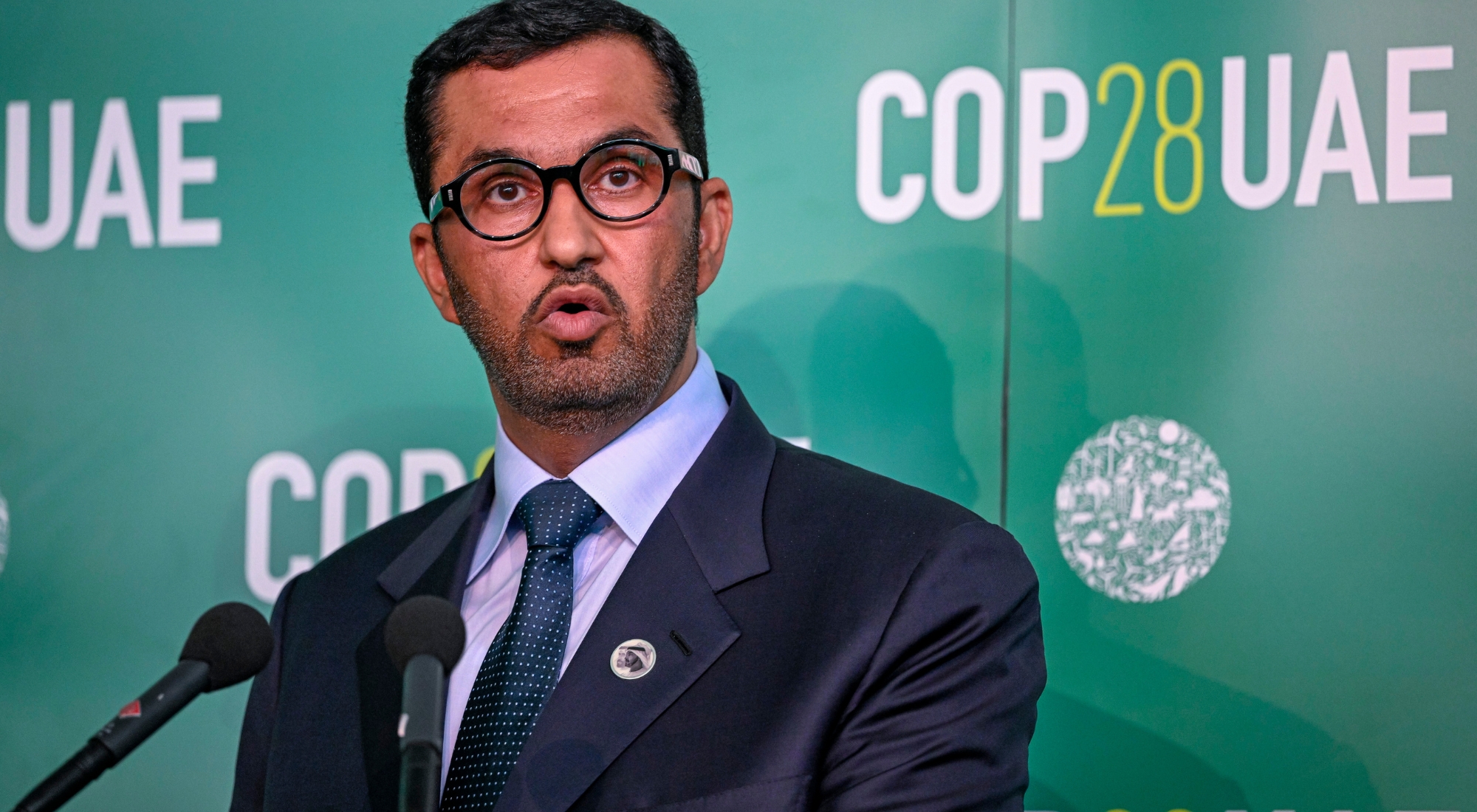
Key Human Rights Messages for COP28 UAE
- The UAE and the international community must protect civic space at COP28 for participants of all nationalities and opinions.
- The UAE must show its seriousness about facilitating an open COP28 in a free civic space by releasing Emirati prisoners of conscience and revoking laws that suppress freedom of expression, association and assembly.
- All states attending COP28 must press the UAE for meaningful improvements in its human rights record ahead of the conference. This includes, as a matter of priority, pressing the UAE to release all prisoners of conscience and others imprisoned for the non-violent exercise of their rights to freedom of expression and/or association as a sign of its seriousness about allowing an open civic space in which a successful COP28 conference can take place.
- The UAE and all UNFCCC parties together must address their contributions to climate change by committing to a rapid, equitable phase-out of fossil fuels, which is necessary to limit global warming to the internationally agreed target of no more than 1.5°C.
Civic Space
Arbitrary Detention and Prisoners of Conscience
From 2011 to 2014, the UAE effectively shut down the limited space that had existed for dissent in the country by arbitrarily detaining scores of Emirati nationals, including dozens who had signed a March 2011 petition for democratic reform addressed to the country’s rulers.
Authorities subjected 94 defendants to a mass trial (the “UAE 94” case) that resulted in 69 prison sentences, and dissolved the boards of two of the government-licensed professional associations (the Jurists Association and Teachers Association).4
The UAE government has kept the victims of that mass trial in prison for over a decade, continuing to arbitrarily extend their detention past the end date of their prison sentences under a counterterrorism law which states that those “adopting extremist or terrorist thought” can be detained indefinitely for “counter-extremism counselling”.5
Under UAE law, they have no right to be present or to have representation in the court proceedings determining they are guilty of “extremist thought”. They also have no right to appeal the outcome.6 At the time of publication, 60 of the “UAE 94” remain in prison, 51 of them despite having completed their sentences.
The intimidatory effect of the “UAE-94” trial and the dissolution of the board of the Jurists Association and replacement of its members with government appointees,7 led to the almost complete closure of the space for human rights work in the UAE, as two of the Jurist Association’s former presidents, human rights defenders Mohamed al-Roken and Mohamed al Mansoori, were among the most active voices defending human rights in the country.
Activism and public debate were also quashed as an effect of the crackdown on signatories of the March 2011 pro-democracy petition, with 36 of the signatories ending up among the “UAE 94” defendants.
In this climate, the last Emirati human rights defender doing his work openly in the country was Ahmed Mansoor. In March 2017, the UAE government arrested Ahmed Mansoor for “spreading false information and biased ideas”.8 In May 2018, after over a year in pretrial detention, an Emirati court sentenced him to 10 years in prison for publishing “false information, rumours and lies about the UAE” that “would damage the UAE’s social harmony and unity”.9
For the past six years, the UAE government has held Ahmed Mansoor in solitary confinement without access to books, television or radio, and since December 2017 has denied him a bed, mattress or pillow in his cell, as well as most cleaning and personal hygiene items. In combination, these measures amount to cruel, inhuman and degrading treatment, and likely rise to the level of torture.10
At least 26 Emirati nationals held behind bars today are prisoners of conscience,11 and at least 62 Emirati nationals in prison are arbitrarily detained based on unfair trials on politically motivated charges, including the UAE-94 mass trial.
Given the size of the population of Emirati nationals, who at a bit below 1.2 million are less than 12% of the total population, according to UN figures,12 such numbers have a major impact in deterring the exercise of political and civil rights.
Furthermore, since the “UAE-94” trial began in 2012, Emirati authorities have engaged in reprisals against family members of at least seven defendants in that case through different means including: stripping of nationality; threats of arrest; actual arrests followed by prosecution, conviction and prison sentences; denial of communication with imprisoned
loved ones; threats of loss of government jobs; and travel bans.13
The acts of reprisal took place after family members spoke up about their imprisoned loved ones and, in the cases that involved threats of arrest and firing from jobs, as a means to prevent them from speaking out in the first place.
For example, the UAE has unlawfully deprived of their Emirati nationality and thus made stateless the entire immediate family of “UAE-94” prisoner AbdulSalam al-Marzooqi. The family had spoken out from abroad about his imprisonment.14
Authorities have also cut off all calls between “UAE-94” prisoner Mohamed al-Siddiq and his immediate family after his daughter, the late Alaa al-Siddiq, became an active voice on Emirati human rights from her adopted home in the UK.
The government also imposed a travel ban on the wife and all the children of Ahmed al-Shaiba al-Nuaimi, a “UAE-94” defendant who was convicted and sentenced in absentia to 15 years in prison. One of Ahmed al-Nuaimi’s sons, Mohamed, had cerebral palsy and was in need of his family’s care but could not join them abroad. Mohamed passed away on 5 November 2021 without having been able to see his father for nearly a decade and without being with his immediate family members for seven years.15
Amnesty International calls on the UAE authorities to:
- Release all prisoners of conscience and others imprisoned for the non-violent exercise of their rights to freedom of expression and/or association, who should never have been imprisoned and whose release in advance of COP28 UAE would send a clear message that the government is serious about having an open dialogue with civil society as it claims.
- Detained prisoners of conscience who should be immediately and unconditionally released include: Ahmed Mansoor, Nasser bin Ghaith, Mohamed al-Roken, Mohamed al-Mansoori, Saleh al-Dhufairi, Husain al-Hammadi, Ali al-Hammadi, Ahmed al-Zaabi, Mohamed al-Siddiq, Ahmed al-Suwaidi, Isa al-Suwaidi, Hasan al-Jaberi, Husain al-Jaberi, Ebrahim al-Marzooqi, Shahin al-Hosni, Hadef al-Owais, Sultan al-Qasimi, Khalid al-Nuaimi, Najeeb al-Amiri, Abdullah al-Hajri, Fahd al-Hajri, Khalifa al-Nuaimi, AbdulRahman al-Hadidi, Mohamed alAbdouli, Saif al-Ajlah, and Salem al-Shehhi.
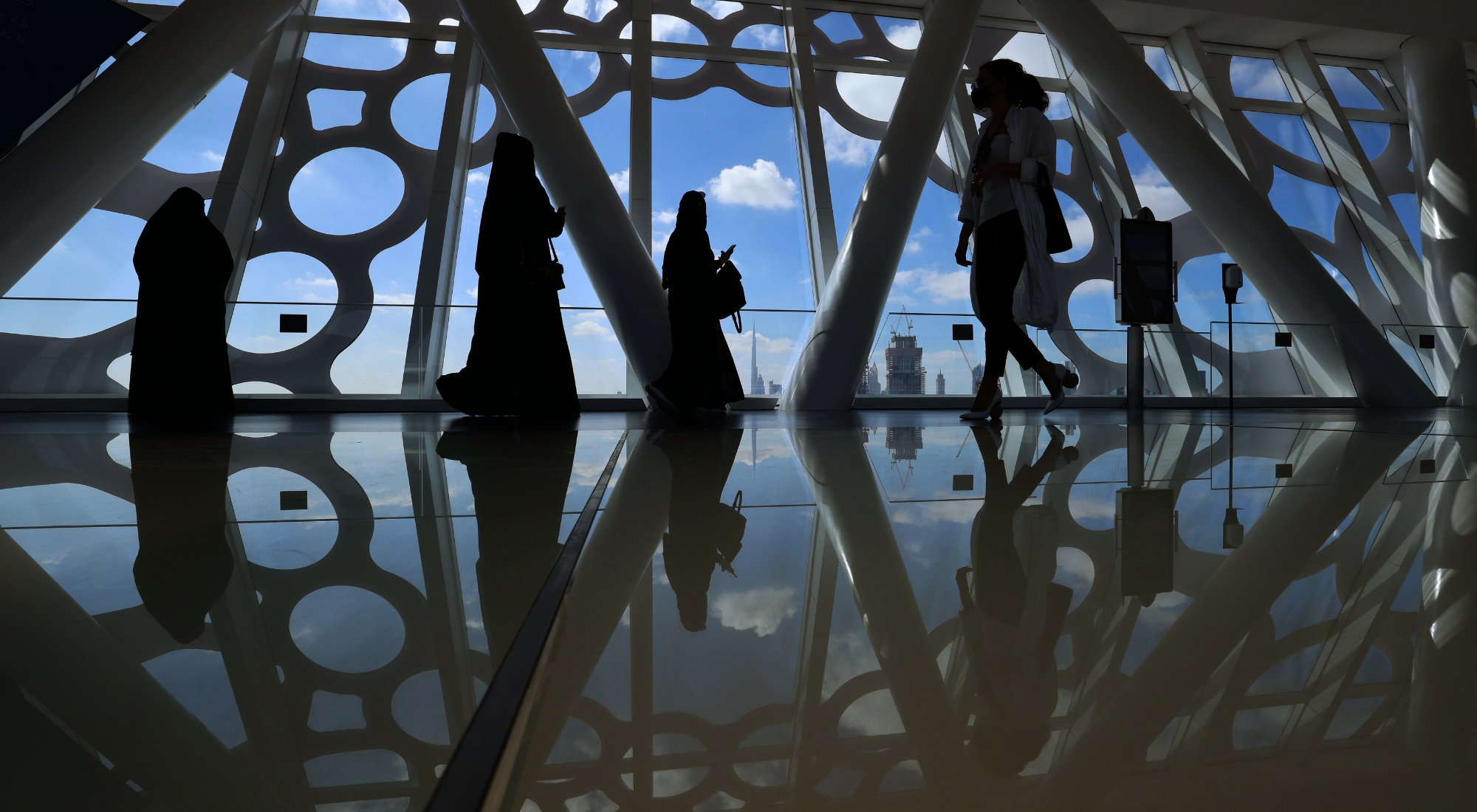
Laws & Practices Supressing Freedom of Expression, Association and Peaceful Assembly
UAE law imposes severe restrictions on and punishments for the exercise of the rights to freedom of expression, association and peaceful assembly. Multiple legal provisions outlaw and punish criticism of the political system, the government and the rulers of the country.
For example, under the law on printed materials and publishing it is illegal “to attack by criticism the person of the president of the state or the rulers of the Emirates”, with infractions punishable by up to two years in prison.16
The new Code of Crimes and Punishments, which went into effect in January 2022, outlaws “mocking, insulting or damaging the reputation, prestige or standing of the state or one of its authorities or institutions, or any of its founding leaders”, with violations punishable by up to five years in prison. It also imposes a 15-year mandatory minimum prison sentence for “mocking, insulting or damaging the reputation or prestige of the President”.17
Punishments relating to exercising the right to freedom of association are harsher. Founding, organizing, joining, participating in, helping or cooperating with “any association, body, group, organization or collective” that “aims or calls for the overthrow of the system of government in the state… or for opposition to the basic principles that the system of government in the state is based on… or for damage to national unity and social peace” is punishable by death or life in prison.18 The same punishments apply to founding, organizing, joining, participating in, helping or cooperating with any kind of organization or association “whose activity harms the … interests of the state”.19
The current Code of Crimes and Punishments does not totally ban all public assembly but includes broad and overly vague restrictive language and imposes harsh penalties that effectively deter the exercise of the right to peaceful assembly.
The punishment for “anyone who calls for an assembly in a public place… with intention of… impeding implementation of laws and regulations or infringing on public security” is life in prison, “even if his call is not responded to”.20 “Any march or procession” that has “the same effect” (of “impeding implementation of laws or regulations or infringing on public security”) is also punishable by life in prison.21 Remaining at “an assembly of five or more people in a public place” that “infringes on public security” after “an order has been issued by authorities to disperse” is punishable by a minimum prison sentence of one year.22 The mandatory minimum sentence rises to five years if “the assembly results in… disruption of production” or “disruption of traffic”.23
The Emirati president-designate of COP28 UAE, Sultan Al Jaber, has played a role in enforcing the laws against freedom of expression in the past, when he served from 2015 to 2020 as chairman of the National Media Council.24 The National Media Council (replaced in 2021 by the Media Regulatory Office, under the Ministry of Culture) was responsible for censorship of all media content in the country, according to vague and overly broad standards such as compliance with the “religious, cultural and social values prevailing in the country” and “with the public policy of the state and the orientation of the government”.25
The National Media Council held the authority to “forbid… the printing, circulation or introduction into the country of any printed material except after the issuance of a decision agreeing to grant permission to its informational content”. Likewise, the council could ban any website’s use within the country.26
In his role at the National Media Council, Al Jaber was known for exercising strict control over local and international media in the UAE.27 For example, in July 2017 one of Dubai’s media regulatory bodies, subject by law to the overall authority of the National Media Council, banned the print and online editions of Arabian Business magazine because it published a report about failed real estate projects at a time when the country’s economy was faltering.28
Al Jaber’s role as the head of a censorship agency raises concerns over the UAE’s treatment of media at COP28 and whether freedom of expression will be respected. So far in 2023 the signals regarding the right of freedom of expression in the UAE have not been positive.
In April 2023, Forecasting Health Futures, a coalition of international NGOs and businesses, warned participants in a climate change event that they organized in Abu Dhabi, “Do not criticise Islam, [the] UAE government, corporations or individuals”, and “do not protest”, because “[p]rotesting is illegal in the United Arab Emirates.”29
Though this warning was not issued by the government, it reflects the accurate understanding that Emirati law bans criticism of the government and severely restricts the right to public protest.
Amnesty International calls on the UAE authorities to:
- Rescind all provisions of law banning or unduly restricting the rights to freedom of expression, association and peaceful assembly;
- Ratify the International Covenant on Civil and Political Rights;
- Respect and protect the rights to freedom of expression, peaceful assembly and association at COP28 UAE for participants of all nationalities and opinions, as open civic space is an integral part of the COP process.
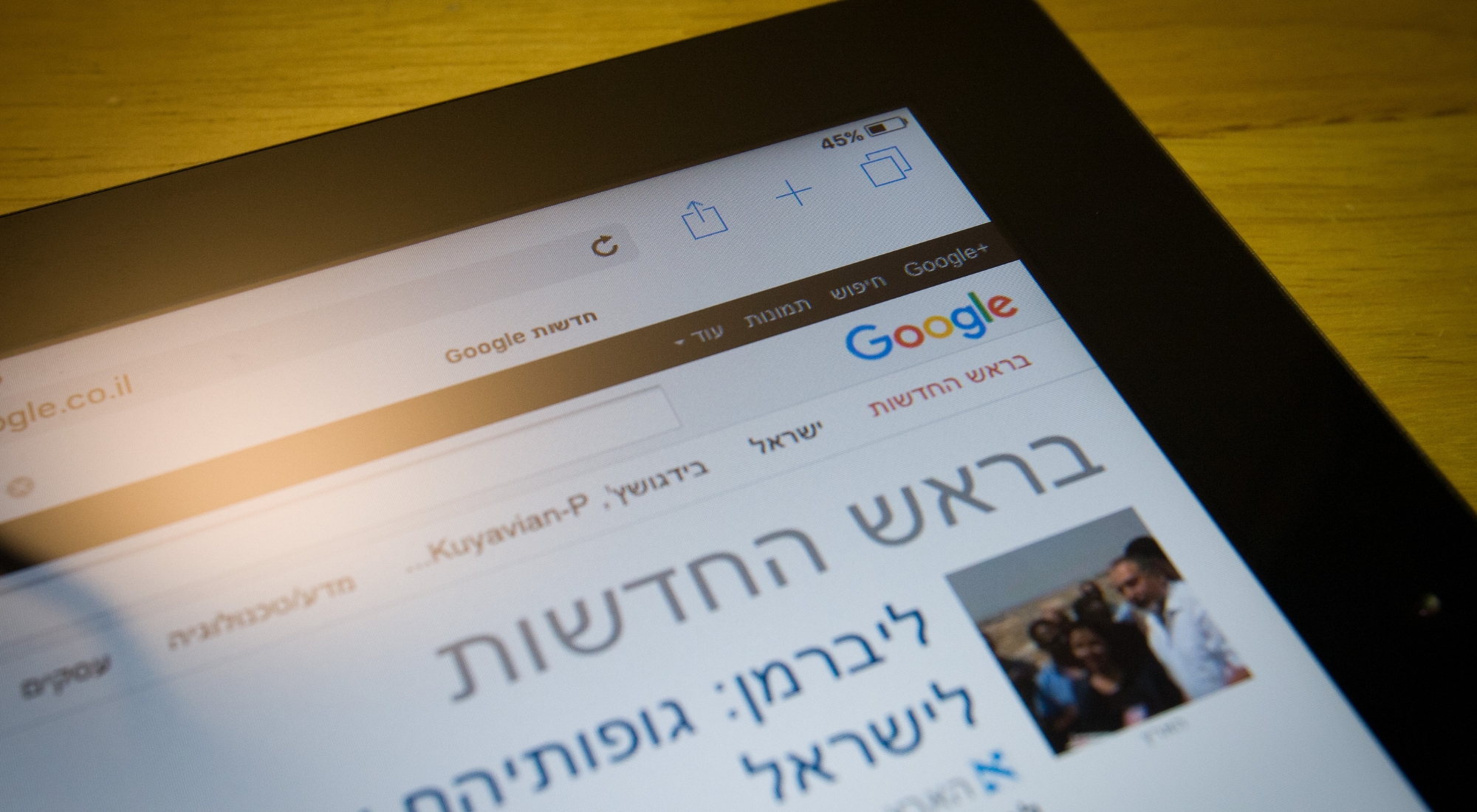
Digital Surveillance
The UAE government has long been targeting human rights defenders by digital spying. For example, before authorities imprisoned him in March 2017, prominent human rights defender Ahmed Mansoor faced repeated cyber-attacks facilitated by the mercenary surveillance companies NSO Group and Hacking Team.30
Digital forensic investigation by Amnesty International and others has shown that the UAE was likely one of the customers of NSO Group, the Israeli producer of an extremely powerful hacking-and-surveillance software known as Pegasus.31 According to NSO, Pegasus is
only licensed for use by governments.32
Citizen Lab, which investigates spyware attacks targeting civil society, found that
in 2020 Pegasus was used to hack the phone of the late Emirati human rights defender Alaa al-Siddiq while she was living in exile in the UK.33 In May 2021, a UK court found according to the civil standard of proof (“more probable than not”) that the Ruler of Dubai had approved the use of the Pegasus software to target the phones of six individuals in the UK, including a member of the House of Lords (Fiona Shackleton).34
The Pegasus Project, a collaborative investigation by Amnesty International and an international team of journalists, has found that journalists and editors at publications including the Financial Times, The Economist and the Wall Street Journal were selected for targeting with Pegasus, likely at the request of the UAE.35 Investigative journalist Bradley Hope of the Wall Street Journal, for example, was selected for targeting after contacting UAE officials for comment on an investigation into an international corruption scandal that turned up financial connections to UAE Deputy Prime Minister Mansour bin Zayed, the brother of President Mohamed bin Zayed.36
Amnesty International has ongoing concerns that individuals in the UAE may continue to be targeted by spyware, potentially including those attending COP28.
In April 2023, Amnesty International’s Security Lab revealed a new spyware attack campaign operating within the UAE, among other countries, that exploited previously unknown vulnerabilities in Google’s Android operating system to hack mobile devices.
The type of hack used, known as a zero-day exploit, enabled the attackers to compromise even fully updated phones, although after Amnesty International’s Security Lab alerted Google in December 2022 the company was able to address the vulnerability in subsequent updates.37 Google’s threat analysts found that Android users in the UAE were targeted with links sent by text messaging which, if clicked on, would install the spyware on the user’s phone.38
A New York Times investigation found that a communications app for mobile phones (ToTok) introduced in 2019 was “used by the government of the United Arab Emirates to try to track every conversation, movement, relationship, appointment, sound and image of those who install it on their phones”. Google and Apple subsequently removed the app
from their online stores.39
Amnesty International calls on the UAE authorities to:
- Refrain from censoring communication networks in the country, including allowing the free use and full functionality of all encrypted messenger apps before, during and after COP28 UAE;
- Refrain from violating the right to privacy of all COP28 UAE participants and Emirati nationals and residents by not engaging in extrajudicial or secret electronic surveillance of individuals.
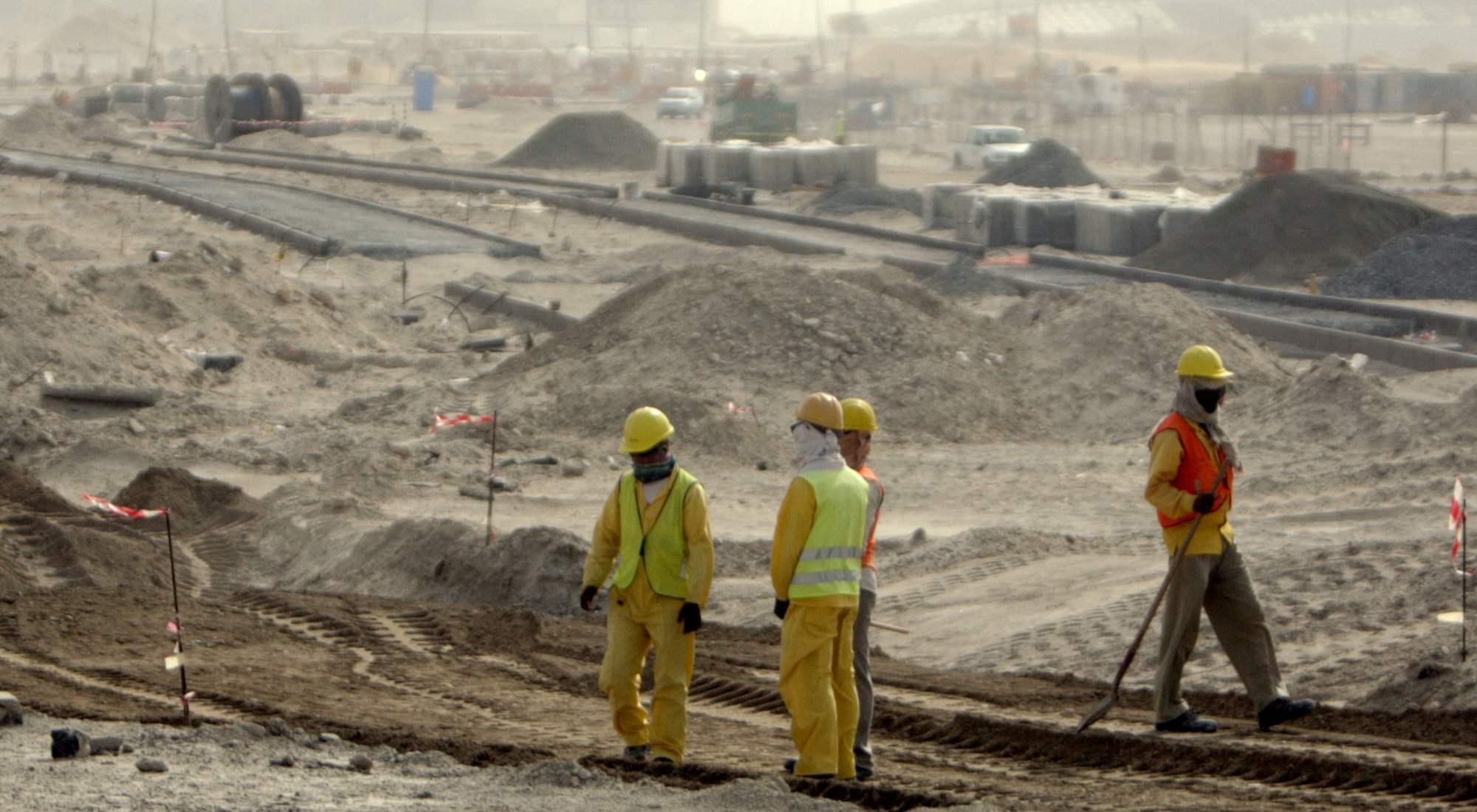
Migrant Workers
Arbitrary Detention & Deportation
Amnesty International and others have documented how, from June through October 2021, the UAE arbitrarily detained and deported at least 376 African migrant workers whom authorities targeted on a racial basis, in violation of its obligations under the Convention on the Elimination of Racial Discrimination.
Police in Abu Dhabi raided the workers’ homes in the middle of the night, separated Black African workers from South and Southeast Asian migrants and other nationalities, removed them in their nightwear at gunpoint and loaded them onto buses which took them to al-Wathba prison.40
The deportees were held at al-Wathba in inhumane conditions – including overcrowding, denial of medical care and painful days-long shackling of both hands and legs for those who protested – for periods ranging from weeks to months, without ever being able to contact a lawyer or receiving a court hearing. When they were deported, the UAE sent them back to their countries of origin without any of their possessions – not even their personal identity documents, other than the passport needed to board the plane.
Eleven out of 18 of the deportees interviewed by Amnesty International were from the Anglophone region of Cameroon and were returned to conditions of civil war,41 without any process to assess whether they had a credible fear of persecution, even when they told their Emirati guards that they feared death or displacement if sent back.42
When the mass deportations were reported, first by the NGOs Euro-Mediterranean Human Rights Monitor and ImpACT International for Human Rights Policies and then by the Thomson Reuters Foundation, the UAE claimed that the deportees belonged to criminal “prostitution networks… involved in human trafficking” and were therefore deported “in accordance with legal procedures”. Amnesty International was able to verify that all of the deportees it interviewed had been legally present in the country for jobs at lawful businesses.43
In September 2021 the UAE issued a new law on entry and residence of foreigners, which went into effect a month later. However, the new law did not establish protections against future potential arbitrary detentions and deportations.
Under the new law, the Federal Authority for Identity, Citizenship, Customs & Port Security “may cancel any visa or residency permit at any time… for reasons related to the public interest”, and both this agency and the federal Office of Public Prosecution may order the deportation of a migrant worker and their family members “even if [the migrant] has a visa or residence permit if the public interest, public security, or public morals require the deportation”, or if the migrant “does not have an evident means of livelihood”.44
This vague and overly broad mandate grants executive authorities total discretion, leaving foreign residents with no ability to appeal the decision to any legal body. The Federal Authority can also order that these deportations be carried out using the migrant’s own money.45
Amnesty International calls on the UAE authorities to:
- Provide appropriate and effective remedy, including restitution for losses and compensation for suffering endured to the hundreds of African nationals arbitrarily detained and deprived of their property in the mass deportation of 2021;
- Revise laws to afford protection from arbitrary deportation by eliminating the purely executive authority to terminate valid legal status at any time on only vague grounds of “public interest, public security, or public morals”, and by guaranteeing procedural safeguards including the ability to individually challenge deportation decisions, access to competent interpretation services and legal counsel, and access to a review mechanism for
negative decisions
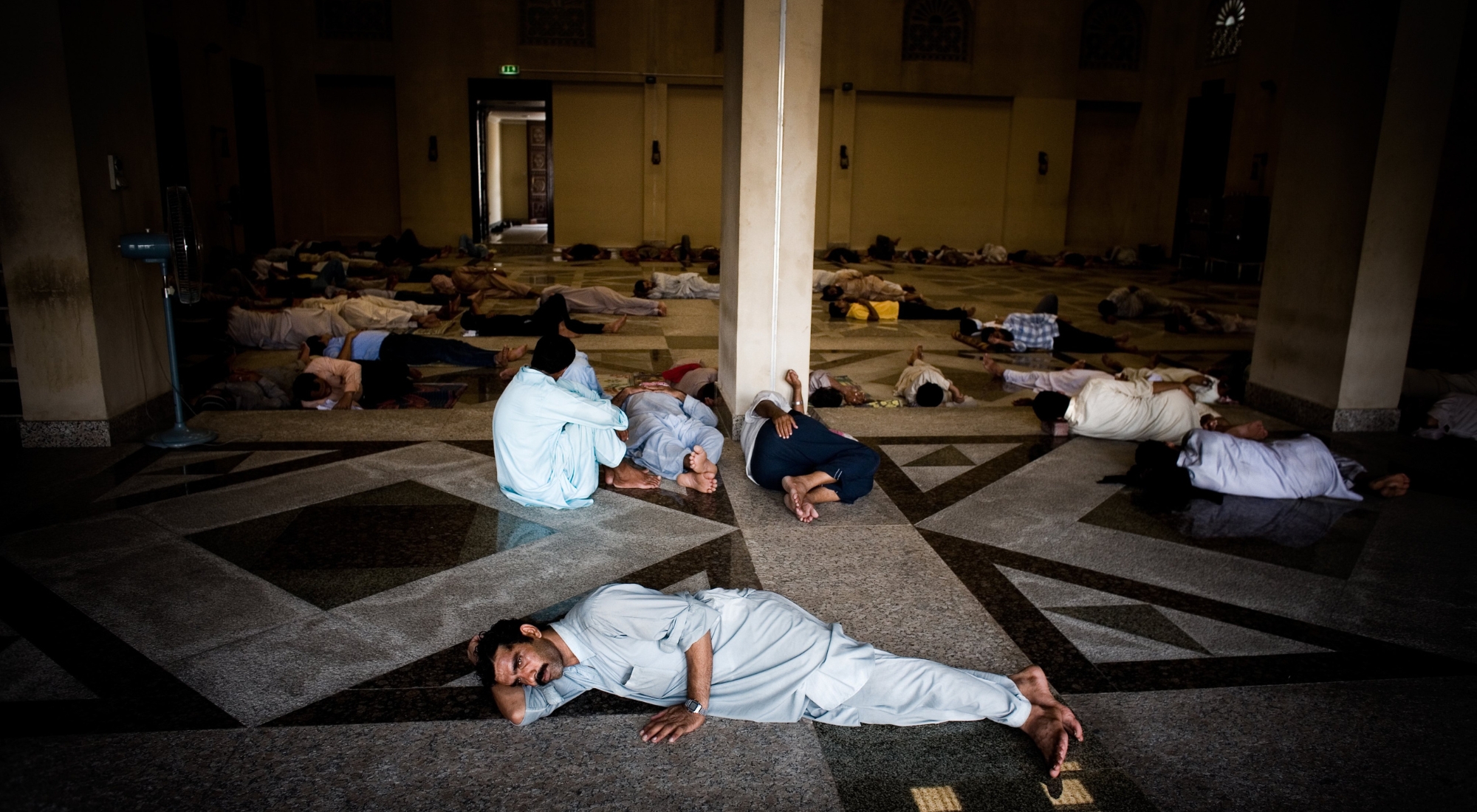
Lack of Adequate Legal Protection from Labour Exploitation
Migrant workers and their family members, numbering over 8.7 million people, make up around 88% of the UAE’s population,46 but UAE law does not provide them adequate protection from labour exploitation in line with the UAE’s international legal obligations.47
The UAE has separate legal regimes governing work in the public sector, the private sector, and for “service workers”. The “service worker” category includes domestic workers (that is, employees who live in the household of their employer, including for example maids, nannies and personal cooks), as well as other jobs such as gardener, personal driver and agricultural labourer.48
The UAE issued wholly new framework laws on the “service workers” category in 2017 and then
again in 2022,49 and a wholly new framework law on the private sector that went into effect in February 2022.50 However, like previous labour laws, these new laws do not provide for a minimum wage or permit migrant workers to exercise their rights to form unions and take industrial action, including going on strike.51
Most Emiratis work in the public sector, where by law Emirati nationals (but not other nationals) are guaranteed a minimum salary (at the absolute lowest level, of 5,300 dirhams (about 1,300 euros) per month).52 According to the most recent official figures, 78.2% of employed Emirati nationals work in government, and only 8% work in the private sector, whereas 87.3% of non-Emiratis work in the private sector (including domestic workers).53
Employment in the public sector tends to pay far more than employment in the private sector.54 The government does not publish data on the gap, but a 2020 survey by Hays recruitment agency, for example, found that public sector jobs in Abu Dhabi paid up to 50% more than comparable jobs in the private sector.55
In addition, when Emirati nationals do work in the private sector, the government pays them – but not workers of other nationalities – salary supplements, which start at 5,000 Emirati dirhams per month (about 1,240 euros), with an additional 600 dirhams per month (about 145 euros) for each child, up to four children.56
Conditions of work are also more favourable in the public sector. The private sector law allows employers to set an eight hour workday, for up to 48 hours per week before employees’ working hours are considered overtime, which requires higher pay.57 Government employees, however, have a seven-hour workday (7.30am-2.30pm).58
Domestic workers and others in the “service worker” category are particularly vulnerable to exploitation due to both the nature of their circumstances and less favourable legal conditions governing their work. With no minimum wage requirement, the worker’s salary is agreed in a contract between the employer and the labour-importing agency.59
While the new law states that discrimination based on “national origin” is forbidden, without a common national minimum salary that applies to all residents in the UAE, the existing practice of different levels of payment based on nationality is likely to continue.60 Under the law, an employer can require a service worker to work for up to 12 hours per day, six days per
week, making for a work week of up to 72 hours, “and can make [the worker] work on their weekly day of rest” provided another day off is given or a day’s wage (above the normal monthly salary) is paid for the cancelled day of rest.61
The law states that all service work labour shall be governed by a model contract issued by the Ministry of Human Resources and Emiratisation,62 but the UAE has not published this model contract, making it very difficult for independent outside experts to assess the adequacy of its protections and for people in labour-sending countries who are considering going to the UAE as service workers to read in advance what the terms of their employment will be.
Independent international investigations have found exploitative labour conditions that violated migrant workers’ rights in major Emirati construction and infrastructure projects in the past decade. In an investigation based on interviews with migrants who worked in construction and service roles for Dubai’s Expo 2020, the international labour rights NGO Equidem found that forced labour practices were reported by a majority of workers interviewed.63
The UAE has announced that Expo City, which was built to the south of Dubai to host Expo 2020, will provide the venue and infrastructure for COP28.64 This means that the climate conference is also linked to the exploitation of migrant labour in building the relevant venue and infrastructure.
In this context, it is essential that the international community begins to act early before COP28 UAE to ensure that it does not either entrench immunity for past exploitation or cause new violations of migrant workers’ rights.
Other examples of exploitation of migrant labour in major UAE projects over the past two decades include practices during the construction of Saadiyat Island, an artificial island off the coast of Abu Dhabi that is the site of prestigious cultural institutions such as branches of the Louvre and the Guggenheim museums,65 as well as during the construction of an Emirati branch campus of New York University (NYU Abu Dhabi, also on Saadiyat).
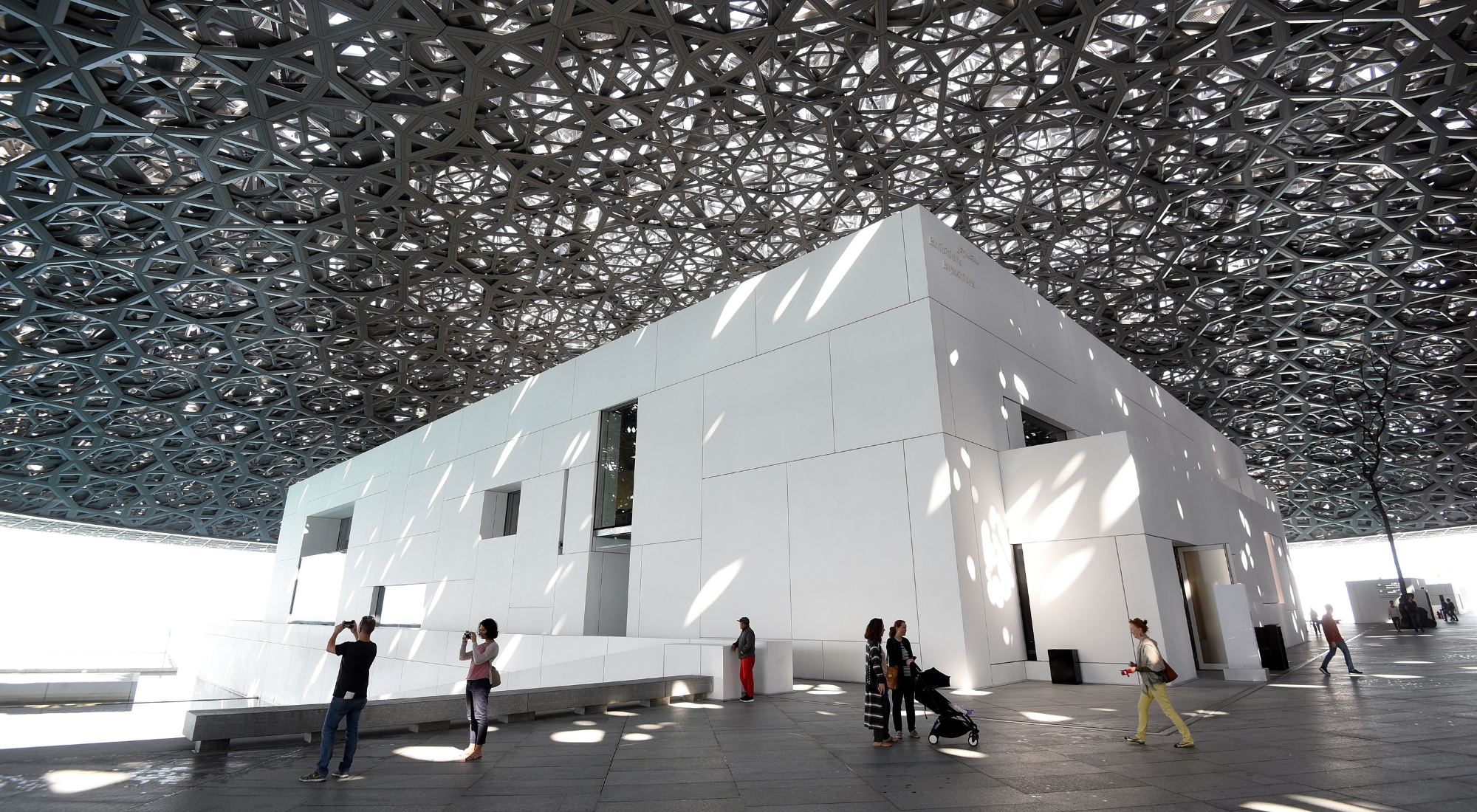
The construction of the NYU campus from 2007 to 2014 by the state-controlled company Mubadala “likely entailed forced labour”, according to an internal investigative panel formed by the university.66 Mubadala and the Abu Dhabi National Oil Company are two of the three shareholders (the third is also a state company) owning Masdar, the UAE’s state renewable-energies company that is chaired by COP28 President Sultan Al Jaber.67
Amnesty International calls on the UAE authorities to:
- Revise labour laws to establish a national minimum wage or salary that applies to all workers, regardless of nationality, and to recognize their right to form unions and go on strike regardless of their status;
- Launch a transparent public investigation into violations of migrant workers’ rights during the building of the Expo 2020 infrastructure, and provide appropriate and effective remedy to workers exploited during construction of that project;
- Ratify the International Covenant on Economic, Social and Cultural Rights;
- Prior to the necessary law reform, publicly commit to ensuring that all workers supporting COP28 UAE receive an adequate minimum wage and that in line with the UAE’s obligations under ILO Convention 81 on Labour Inspection they are not subjected to exploitative working hours and other abusive labour conditions.
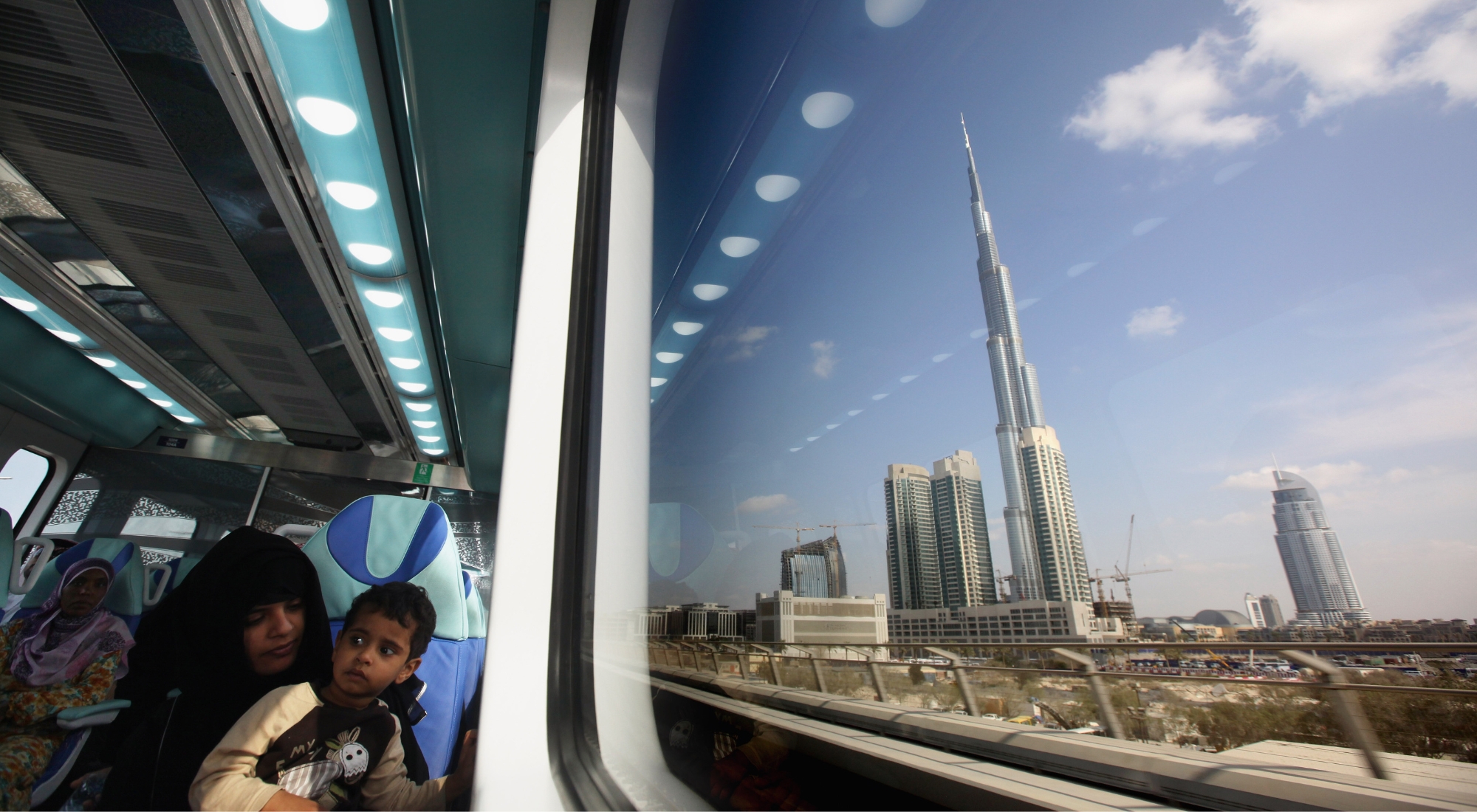
Women’s Rights
The UAE maintains a number of discriminatory legal provisions that place women on an unequal footing with men and contribute to gender discrimination and inequality. Although it is a party to the Convention on the Elimination of All Forms of Discrimination against Women, the Emirati government maintains a reservation that it “does not consider itself bound” by Article 15(2) on women’s legal equality under civil law because it is “in conflict with the precepts of the Shariah” (Islamic religious law), in particular with respect to “the rules of inheritance”, transmission of nationality, and “legal capacity, testimony and the right to conclude contracts”.68
The UN Committee on the Elimination of Discrimination against Women, which interprets and monitors compliance with the treaty, has found that the UAE’s reservations “are incompatible with the object and purpose of the Convention”.69
Since 2020, the UAE has applied its personal status law to Muslim Emirati nationals, while allowing nationals of other religions to follow their own religious law. Foreign nationals are permitted to act under the laws of their country of origin in matters of personal status (such as marriage, divorce, inheritance and child custody).70
According to the domestic personal status law that applies to Muslim Emirati women, a “husband’s rights over his wife” include that she shall “look after the house” and “any other rights decided according to Islamic law”.71 Also under the law, a husband is not required to provide his wife with financial support if, “without an excuse valid in Islamic law… she denies herself to her husband… does not return to the marital home… prevents the husband from entering the marital home… [or] will not travel with her husband”.72
The law also makes the wife’s right to leave home conditional, subject to ruling by a judge under Islamic law (al-shar‘a): “It shall not be considered an infringement on the obedience due for a wife to leave the home in accordance with Islamic law or custom, or according to necessity, or to work in accordance with … customs, and it is for the judge to observe the interests of the family in all this”.73
Emirati law discriminates based on gender in the transmission of nationality, as all children born to an Emirati father become Emirati nationals from the moment of birth, whereas children born to an Emirati mother but a non-Emirati father can only be granted Emirati nationality by special permission from the government, something that cannot be applied for until at least six years after birth.74
On 4 March 2018, Emirati and Indian security forces abducted one of the adult daughters of Emirati Prime Minister and Ruler of Dubai Mohamed bin Rashid off a boat in international waters and forcibly returned her to Dubai. Latifa Mohamed bin Rashid Al Maktoum had attempted to flee Dubai after recording a video that was posted online, accusing her father of
exercising abusive control over her and her older sister Shamsa.75
Amnesty International calls on the UAE authorities to:
- Withdraw the UAE’s reservations to the fundamental tenet of the Convention on the Elimination of All Forms of Discrimination against Women that women and men are equal before the law;
- Bring its personal status and nationality laws into compliance with international human rights law, including the principle that men and women are equal before the law.
Sexual Rights
The UAE retains laws that infringe on the right of consenting adults to freely decide their own sexual practices. When the new Code of Crimes and Punishments came into effect at the start of 2022, it reinstated the long-standing criminalization of consensual same-sex and sex outside marriage between consenting adults that had been briefly decriminalized in late 2020.76
The current version of the law allows for a prison sentence of six months to three years for “[a]nyone who fornicates with a woman or commits sodomy with a man over 18 years old by consent, and the same punishment for anyone who accepts the foregoing” (that is, both parties consenting to the sexual act of “fornication” or “sodomy” are subject to punishment).77 However, in a change from the previous version of the law, prosecution is only initiated “on the
basis of a complaint by a husband or male guardian”.78
The law is thus most likely to be invoked against women or LGBTI individuals whose families do not accept their choice of sexual partners.
In addition, a number of legal provisions authorize prison sentences for vague and over-broadly defined personal conduct crimes such as “any act… or speech” that is “scandalous” and “offends modesty” or “public morals” and “inciting, tempting, or misguiding a man or woman, by any means, into committing sin or indecency”.79
Amnesty International calls on the UAE authorities to:
- Rescind all provisions of law that, either explicitly or through vague, overly broad and legally undefined terms have the effect of criminalizing consensual sexual conduct between adults.
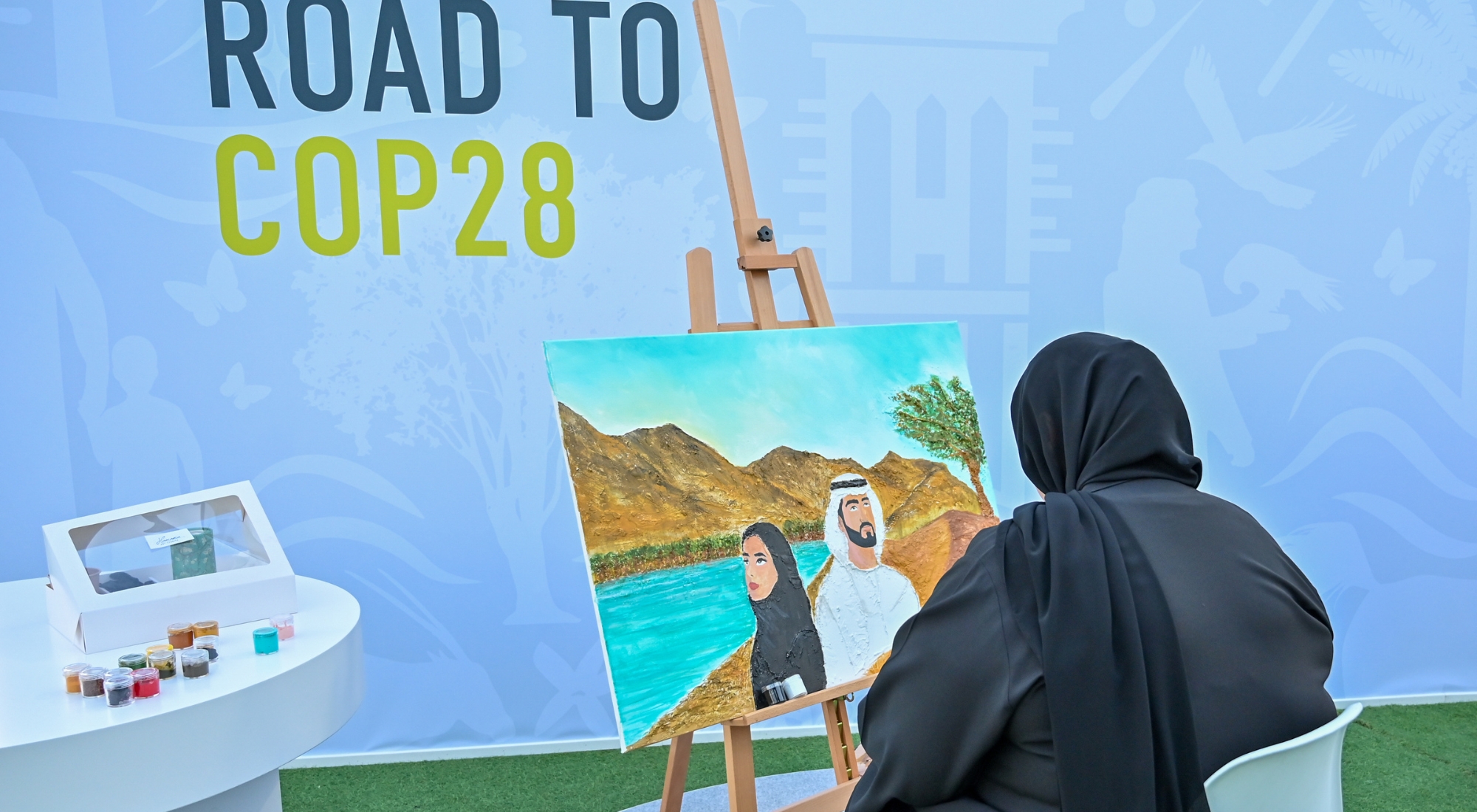
Climate Change Policy
The UAE’s plans for emission reductions are utterly inadequate. In 2020, the government submitted an updated Nationally Determined Contribution,80 which included for the first time an emission reduction target for 2030. It was also among the few countries which submitted a strengthened emission reduction target in 2022 following a COP26 request to all states to do so by the end of 2022.81
However, the target and domestic policies are still far from being aligned with the imperative of keeping the increase of global average temperatures below 1.5˚C. As calculated by Carbon Action Tracker, the target and the policies are instead consistent with a level of up to 3˚C global warming.82
If the UAE’s policies are so inadequate it is because, despite good plans to expand the capacity for renewable energy, the government is still pursuing an expansion of fossil fuels production and consumption. A rapid and equitable phase out of all fossil fuels use and production is essential to prevent levels of global warming that would be even more catastrophic for the enjoyment of human rights.83
At the beginning of 2021, in order to take advantage of rebounding global petroleum markets as the COVID-19 pandemic closures eased, the UAE lobbied successfully for a rollback of oil production cuts that had been agreed between global oil producers during the pandemic.84 The UAE is planning to significantly increase its oil and gas production by 2030,85 including through its state company, the Abu Dhabi National Oil Company (ADNOC), which has the third biggest oil and gas expansion plans in the world.86
In this context, the statement by the UAE’s Minister of Climate Change and Environment in February 2023, during the Munich Security Conference that the world “need[s] to… phase out oil and gas”,87 appears to be disconnected from domestic policies and practices.
In January, the UAE appointed Sultan Al Jaber, the chief executive of ADNOC, as COP28 president-designate. Amnesty International and many other civil society organizations expressed concerns about this appointment, pointing out the glaring conflict of interest and calling for Sultan Al Jaber to resign from his executive role in ADNOC.88
As this call has remained unanswered, concerns remain over Sultan Al Jaber’s capacity to champion a global commitment to phase out all fossil fuels and fossil fuel subsidies at COP28.
At the previous climate conference, COP27 held in Egypt in November 2022, governments failed to include in the conference’s decision a call on states to phase out all fossil fuels. Instead, the decision merely repeated the call from the previous COP to “accelerate efforts towards the phase-down of unabated coal power” and “phase-out of inefficient fossil
fuel subsidies”.89
The Arab regional group, headed by Saudi Arabia and representing the UAE and other Gulf hydrocarbon producers, was among the most vocal opponents of language on the need to phase out all fossil fuels.90
In May 2023, COP28 president-designate Sultan Al Jaber emphasized the need to phase out fossil fuel emissions, rather than production, adding that the UAE “will encourage smart government regulation to… make carbon capture commercially viable”.91 This raises concerns that the UAE will use its presidency to ensure that fossil fuel companies can continue to produce – and even expand – production, rather than leaving fossil fuels in the ground, while relying on technologies such as carbon capture and storage and large-scale carbon dioxide removals mechanisms.
These are unproven, or ineffective, or come with high human rights and environmental risks.92 Data from the Independent Panel on Climate Change shows that such mechanisms cannot bring about the scale of emissions reduction required by 2030.93
While Al Jaber has stated in his role as COP28 president that keeping global warming within the internationally agreed upper boundary of 1.5°C is a “non-negotiable” goal,94 that target is unattainable without beginning to reduce fossil fuel use now. The International Energy Agency has stated that any new fossil fuel development is incompatible with reaching zero emissions in 2050.95
Amnesty International calls on the UAE authorities and all other parties to the UNFCCC together to:
- Commit to a rapid phase-out of fossil fuels beginning immediately, which necessarily means beginning to reduce, not increase, hydrocarbons production, in order to preserve the internationally agreed goal of limiting global warming to 1.5°C.
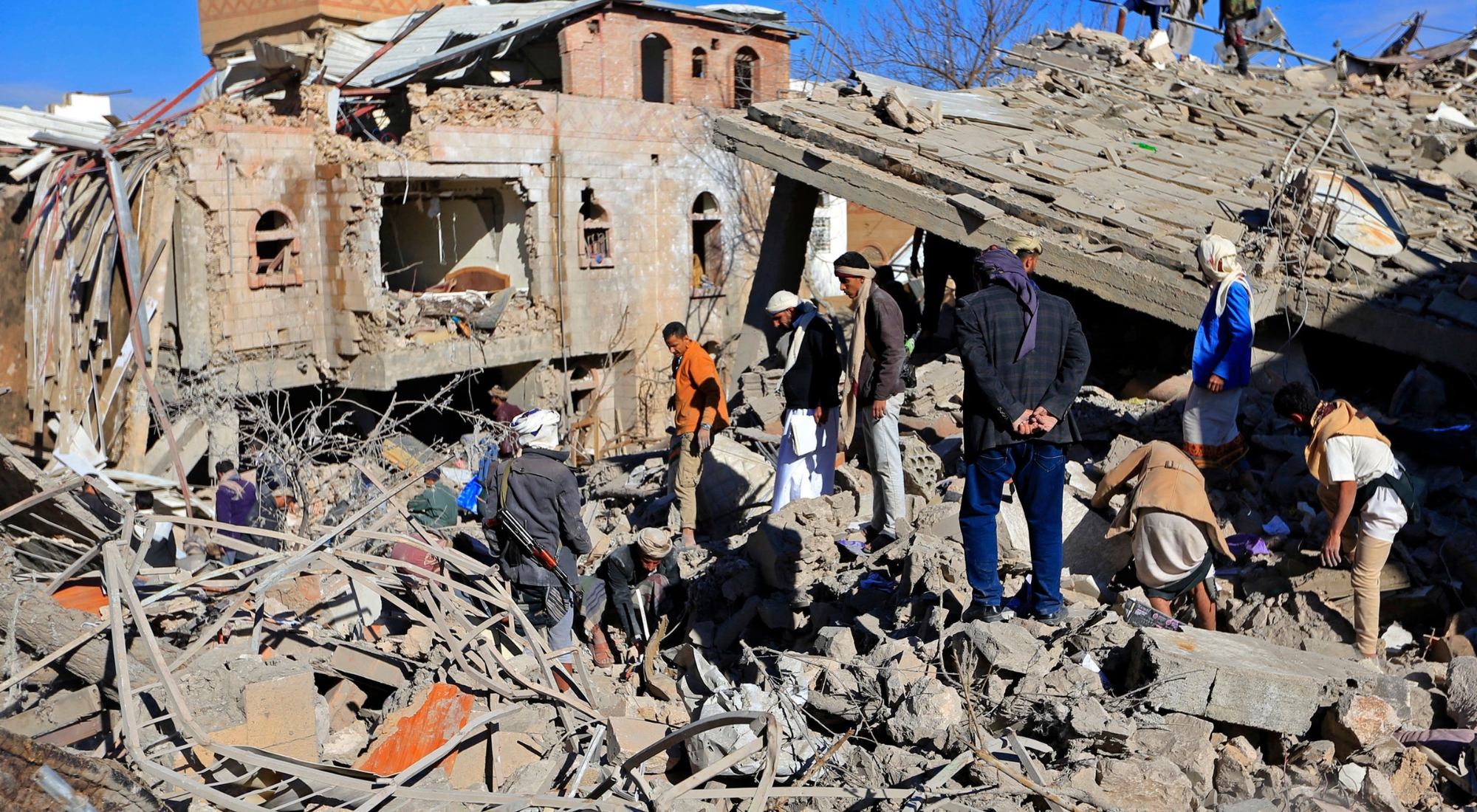
Armed Conflicts in Yemen and Libya
Since 2015, when the Saudi and UAE-led coalition became directly involved in the armed conflict in Yemen, coalition forces have been implicated in war crimes and other serious violations of international law. This has included conducting scores of unlawful air strikes that have killed and injured civilians and destroyed or damaged homes, hospitals, schools,
markets, and other civilian infrastructure, as well as arming and supporting local armed groups that have committed grave violations of international law.96
The UAE has played a major part in quashing efforts to hold parties to the conflict in Yemen accountable for war crimes, including by joining Saudi Arabia in 2021 in conducting a lobbying campaign at the UN Human Rights Council that resulted in preventing the renewal of the mandate of the Group of Eminent Experts, the sole international investigative mechanism on Yemen.97
The UAE has also been “one of the most important… backers” of the Libyan Arab Armed Forces (LAAF), according to the United Nations.98 The LAAF exercises effective control over all of eastern Libya and large parts of southern Libya.
The UN Panel of Experts on Libya has found that UAE support for the LAAF includes arms transfers in violation of the UN embargo on all military transfers to Libya.99 Amnesty International has documented how the Tariq Ben Zeyad armed group, one of the most powerful armed groups operating under the LAAF, has committed many crimes under international law, including murder of civilians, forced displacement, rape and other sexual violence, hostage-taking and pillage.100
Amnesty International calls on the UAE authorities to:
- End support for all armed groups in Yemen responsible for violations of international law;
- Cease working against efforts to achieve accountability for war crimes in Yemen, and support an international criminal investigative body for Yemen;
- Comply with the UN Security Council’s comprehensive arms embargo on Libya and cease supplying arms to all forces there.
Related News
- UAE state oil firm’s expansion plans prove CEO is unfit to lead COP28 climate talks
- Putting UAE oil chief in charge of COP28 threatens further climate chaos
- Global warming will exceed 1.5˚C unless fossil fuels phased out faster: IPCC report
Footnotes
1 The Conference of Parties brings together all states that are parties to the Framework Convention to review its implementation and make further decisions necessary to uphold the Convention’s goal of preventing catastrophic climate change. For more see: https://unfccc.int/process/bodies/supreme-bodies/conference-of-the-parties-cop
2 The Presidency of each COP is held by the host country. The COP president-designate is nominated by the host country and is elected by parties at the beginning of the proceedings.
3 Emirates News Agency – WAM, “Following presidential directive, Mansour bin Zayed appoints COP28 UAE President-Designate”, 12 January 2023, https://wam.ae/en/details/1395303118224
4 Amnesty International, “There Is No Freedom Here”: Silencing Dissent in the United Arab Emirates (UAE), (Index: MDE 25/018/2014), 18 November 2014, https://www.amnesty.org/en/documents/mde25/0018/2014/en/
5 Amnesty International, “UAE: Dissidents arbitrarily detained beyond their sentence must be immediately released”, 30 May 2022, https://www.amnesty.org/en/latest/news/2022/05/uae-dissidents-arbitrarily-detained-beyond-their-sentence-must-be-immediatelyreleased/
6 UAE, الإرھابیة الجرائم مكافحة شأن في 2014 لسنة) 7 (رقم اتحادي قانون] Federal Act No. 7 of 2014 on Combating Terrorist Crimes], Article 40.
7 National, “Jurist Association council to be dissolved”, 22 December 2013, https://www.thenationalnews.com/uae/jurist-associationcouncil-to-be-dissolved-1.300423
8 Emirates News Agency – WAM, “نیابة جرائم تقنیة المعلومات تامر بحبس متھم بنشر معلومات مغلوطة والترویج لأفكار مغرضة” [“Office of Public Prosecution for Information Technology crimes orders detention of accused for publishing wrong Information and spreading biased ideas”], 2 March 2017, http://web.archive.org/web/20170320195033/http://wam.ae/ar/details/1395302604085 (in Arabic); Amnesty International, “UAE: Human rights defender’s whereabouts unknown” (Index: MDE 25/5923/2017), 21 March 2017, https://www.amnesty.org/en/documents/mde25/5923/2017/en/
9 Gulf News, “Man gets 10 years jail for defaming UAE through social media”, 30 May 2018, https://gulfnews.com/uae/crime/man-gets10-years-jail-for-defaming-uae-through-social-media-1.2229192; Amnesty International, “UAE: Activist Ahmed Mansoor sentenced to
10 years in prison for social media posts”, 31 May 2018, https://www.amnesty.org/en/latest/news/2018/05/uae-activist-ahmedmansoor-sentenced-to-10-years-in-prison-for-social-media-posts/
10 Amnesty International, United Arab Emirates: Dissidents Imprisoned and Migrants Racially Targeted (Index: MDE 25/5983/2022), 25 October 2022, https://www.amnesty.org/en/documents/mde25/5983/2022/en/, para. 27; Human Rights Watch, The Persecution of Ahmed Mansoor: How the United Arab Emirates Silenced its Most Famous Human Rights Activist, 27 January 2021,
https://www.hrw.org/report/2021/01/27/persecution-ahmed-mansoor/how-united-arab-emirates-silenced-its-most-famous-human
11 Amnesty International defines a prisoner of conscience as a person who has been deprived of their liberty solely because of their conscientiously held beliefs or for discriminatory reasons, and who has not used violence or advocated violence or hatred.
12 United Nations Population Division, “International Migrant Stock”, https://www.un.org/development/desa/pd/content/internationalmigrant-stock (accessed on 7 May 2023), “Total, destination” data, tables 1 and 2. The UAE does not report on the size of its national population, only on total population size, which includes millions of migrant workers. See Federal Competitiveness and Statistics Centre,
UAEStat database, https://bit.ly/41bc7Nq (accessed on 7 May 2023), population data.
13 Amnesty International, “There Is No Freedom Here” (previously cited), pp. 24, 38, 51; Amnesty International, “UAE: Nearly a decade of unjust imprisonment for ‘UAE-94’ dissidents”, 2 July 2021, https://www.amnesty.org/en/latest/news/2021/07/uae-nearly-a-decade-ofunjust-imprisonment-for-uae-94-dissidents-2/; SANID – Stand up for UAE detainees, Amnesty International and others, “Joint statement: UAE human rights record ahead of COP28”, 1 May 2013, https://www.amnesty.org/en/documents/mde25/6725/2023/en/
14 Amnesty International, “UAE: Nearly a decade of unjust imprisonment for ‘UAE-94’ dissidents” (previously cited). 15 Amnesty International, “UAE: Nearly a decade of unjust imprisonment for ‘UAE-94’ dissidents” (previously cited); SANID – Stand up for UAE detainees and others, “Joint statement: UAE human rights record ahead of COP28” (previously cited); MENA Rights Group, “Quadriplegic son of Emirati dissident separated from his family due to travel ban”, 5 November 2021, https://www.menarights.org/en/caseprofile/quadriplegic-son-emirati-dissident-separated-his-family-due-travel-ban; Ahmed al-Nuaimi, Twitter post, 26 January 2021, https://twitter.com/Ahmad_Alshaibah/status/1354116597410115585; Club suisse de la presse, “UAE Human Rights Review at the UN: Calling for prisoners of conscience to be released”, 10 May 2023, https://www.youtube.com/watch?v=USfTRdk5J4g, minute 14:39.
16 UAE, والنشر المطبوعات شأن في م 1980 لسنة) 15 (رقم اتحادي قانون] Federal Act No. 15 of 1980 on Printing and Publishing], Articles 70, 89.
17 UAE, والعقوبات الجرائم قانون بإصدار 2021 لسنة) 31 (رقم اتحادي بقانون مرسوم] Decree of Federal Act No. 31 of 2021 Issuing the Code of Crimes and Punishments], Articles 184, 183.
18 UAE, والعقوبات الجرائم قانون] Code of Crimes and Punishments] (previously cited), Article 188.
19 UAE, والعقوبات الجرائم قانون] Code of Crimes and Punishments] (previously cited), Article 190.
20 UAE, والعقوبات الجرائم قانون] Code of Crimes and Punishments] (previously cited), Article 212.
21 UAE, والعقوبات الجرائم قانون] Code of Crimes and Punishments] (previously cited), Article 214.
22 UAE, والعقوبات الجرائم قانون] Code of Crimes and Punishments] (previously cited), Article 210, para. 1.
23 UAE, والعقوبات الجرائم قانون] Code of Crimes and Punishments] (previously cited), Article 210, para. 3.
24 Sultan Al Jaber, LinkedIn profile, https://www.linkedin.com/in/dr-sultan-al-jaber/ (accessed 12 April 2023). 25 UAE, للإعلام الوطني المجلس واختصاصات تنظیم شأن في 2016 لسنة) 11 (رقم اتحادي قانون] Federal Act No. 11 of 2016 on the Structure and Powers of the National Media Council], Articles 2, 10; UAE Cabinet, “الإعلامي المحتوى بتنظیم ً Issues Rashid bin Mohammed” [“محمد بن راشد یصدر قرارا Decision Regulating Media Content”], undated, https://uaecabinet.ae/ar/details/news/mohammed-bin-rashid-issues-decisionorganizing-media-content (in Arabic). The new Media Regulatory Office continues to serve as the state’s censorship agency, banning for example a foreign-produced children’s film in June 2022 because it depicted a same-sex kiss. National, “UAE establishes new regulatory body to govern the media”, 22 June 2021, https://www.thenationalnews.com/uae/government/uae-establishes-newregulatory-body-to-govern-the-media-1.1246841; الاعلام تنظیم مكتب] Media Regulatory Office], Twitter post, 13 June 2022, https://twitter.com/uaemro/status/1536251764202164224ً بتنظیم المحتوى الإعلامي” ,Cabinet UAE 26 قرارا یصدر راشد بن محمد”] “Mohammed bin Rashid Issues Decision Organizing Media Content”] (previously cited).
27 Bloomberg, “A Kingdom Built on Oil Now Controls the World’s Climate Progress”, 4 April 2023,
https://www.bloomberg.com/news/features/2023-04-03/uae-s-top-oil-executive-has-a-plan-to-fix-cop28
28 Associated Press, “Dubai website, magazine banned over ‘false news’ allegation”, 26 July 2017,
http://web.archive.org/web/20210716004352/https:/apnews.com/article/193003ac159b41669a27d5cec57343f4
29 Financial Times, “UAE climate event organisers warn speakers not to ‘criticise corporations’”, 2 April 2023,
https://www.ft.com/content/9ddd07b6-5d85-4b32-a0f8-d3cff4a5faca; Human Rights Watch, “UAE Conference Attendees Warned against Criticizing Government”, 5 April 2023, https://www.hrw.org/news/2023/04/05/uae-conference-attendees-warned-againstcriticizing-government
30 Amnesty International, “Amnesty International uncovers new hacking campaign linked to mercenary spyware company”, 29 March
2023, https://www.amnesty.org/en/latest/news/2023/03/new-android-hacking-campaign-linked-to-mercenary-spyware-company/
31 Amnesty International, “Massive data leak reveals Israeli NSO Group’s spyware used to target activists, journalists, and political leaders globally”, 19 July 2021, https://www.amnesty.org/en/latest/press-release/2021/07/the-pegasus-project/
32 High Court of Justice – Family Division, Re Al M (Fact-finding), judgment, 5 May 2021, https://www.judiciary.uk/wpcontent/uploads/2022/07/vii-Hacking-fact-Finding-judgment-5.5.2021.pdf, para 152.
33 Guardian, “New evidence suggests spyware used to surveil Emirati activist Alaa Al-Siddiq”, 24 September 2021, https://www.theguardian.com/world/2021/sep/24/new-evidence-suggests-spyware-used-to-surveil-emirati-activist-alaa-al-siddiq
34 High Court of Justice, Re Al M (Fact-finding) (previously cited), paras 171, 147.
35 Guardian, “FT editor among 180 journalists identified by clients of spyware firm”, 20 July 2021, https://www.theguardian.com/world/2021/jul/18/ft-editor-roula-khalaf-among-180-journalists-targeted-nso-spyware
36 Guardian, “FT editor among 180 journalists identified” (previously cited).
37 Amnesty International, “Amnesty International uncovers new hacking campaign” (previously cited).
38 Google Threat Analysis Group, “Spyware vendors use 0-days and n-days against popular platforms”, 29 May 2023,
https://blog.google/threat-analysis-group/spyware-vendors-use-0-days-and-n-days-against-popular-platforms/
39 New York Times, “It Seemed Like a Popular Chat App. It’s Secretly a Spy Tool”, 22 December 2019, https://www.nytimes.com/2019/12/22/us/politics/totok-app-uae.html
40 Amnesty International, “UAE: Ensure the right to remedy to hundreds of African workers following racially motivated detentions and deportations”, 26 October 2021, https://www.amnesty.org/en/latest/news/2021/10/uae-ensure-the-right-to-remedy-to-hundreds-ofafrican-workers-following-racially-motivated-detentions-and-deportations
41 See, for example, Amnesty International, A Turn for the Worse: Violence and Human Rights Violations in Anglophone Cameroon (Index: AFR 17/8481/2018), 12 June 2018, https://www.amnesty.org/en/documents/afr17/8481/2018/en/; Amnesty International,
“Cameroon: Witness testimony and satellite images reveal the scale of devastation in Anglophone regions”, 28 July 2021, https://www.amnesty.org/en/latest/press-release/2021/07/cameroon-satellite-images-reveal-devastation-in-anglophone-regions/; Human Rights Watch, World Report 2023: Cameroon Events of 2022, 13 January 2023, https://www.hrw.org/world-report/2023/countrychapters/cameroon
42 Amnesty International, “UAE: Mass arbitrary detention and deportation of Africans”, 26 October 2021, https://www.amnesty.org/en/documents/mde25/4896/2021/en/
43 Amnesty International, “UAE: Ensure the right to remedy to hundreds of African workers following racially motivated detentions” (previously cited); Reuters, “‘They told us they hate Africans’: Hundreds detained, deported from Abu Dhabi”, 3 September 2021,
https://www.reuters.com/world/middle-east/they-told-us-they-hate-africans-hundreds-detained-deported-abu-dhabi-2021-09-02/; EuroMediterranean Human Rights Monitor and ImpACT International for Human Rights Policies, “They told us they hated black Africans’: Shocking testimonies of African migrant workers in the UAE, imprisoned, tortured, and deported, September 2021, https://impactpolicies.org/admin/storage/files/shares/African-workers-UAE-en.pdf; Migrant-Rights.org, “‘We cried and begged’: UAE tramples on the hopes, dignity, and rights of African migrant workers”, 22 September 2021, https://www.migrantrights.org/2021/09/we-cried-and-begged/
44 UAE, الأجانب وإقامة دخول شأن في 2021 لسنة) 29 (رقم اتحادي بقانون مرسوم] Decree of Federal Act No. 29 of 2021 on Entry and Residence of Foreigners], Articles 10, 15.1.
45 UAE, 2021 لسنة) 29 (رقم اتحادي بقانون مرسوم] Decree of Federal Act No. 29 of 2021] (previously cited), Article 16.
46 United Nations Population Division, “International Migrant Stock” data (previously cited), tables 1 and 2.
47 The UAE has not ratified the International Covenant on Civil and Political Rights and the International Covenant on Economic, Social and Cultural Rights, but is a party to, for instance, the International Labor Organization’s (ILO) Convention No. 111 on nondiscrimination in employment. ILO Committee of Experts on the Application of Conventions and Recommendations, Direct Request: Discrimination (Employment and Occupation) Convention, 1958 (No. 111), 2022, http://bit.ly/3BHranq
48 المساعدة الخدمة عمال] Schedule No. 1: Service Worker Professions, Attached to Cabinet Decision No. 106 of 2022 on the Implementing Regulations for Decree of Federal Act No. 9 of 2022 on Service Workers].
49 UAE, المساعدة الخدمة عمال بشأن 2017 لسنة) 10 (رقم الاتحادي القانون] Decree of Federal Act No. 10 of 2017 on Service Workers]; UAE, مرسوم المساعدة الخدمة عمال بشأن 2022 لسنة) 9 (رقم اتحادي بقانون] Decree of Federal Act No. 9 of 2022 on Service Workers], Article 31.1.
50 UAE, العمل علاقات تنظیم بشأن 2021 لسنة) 33 (رقم اتحادي بقانون مرسوم] Decree of Federal Act No. 33 of 2021 on Regulation of Labour Relations], Articles 73.1, 74.
51 UAE, 2022, لسنة) 9 (رقم اتحادي بقانون م [Decree of Federal Act No. 9 of 2022] (previously cited), Article 1; UAE, (10). م الاتحادي ا 2017 لسنة] Federal Act No. 10 of 2017] (previously cited), Article 1; US Department of State, 2022 Country Reports on Human Rights Practices, “United Arab Emirates” entry, https://www.state.gov/reports/2022-country-reports-on-human-rights-practices/united-arabemirates/, sections 7.E, 7.A; International Labour Organization, “Regulatory Framework Governing Migrant Workers”, November 2019, https://www.ilo.org/wcmsp5/groups/public/—arabstates/—ro-beirut/documents/legaldocument/wcms_728267.pdf, pp. 1, 2.
52 UAE, [جدول رقم (1) بشأن رواتب الموظفین العاملین بالوزارات والجھات الاتحادیة الخاضعة لأحكام قانون الموارد البشریة في الحكومة الاتحادیة، الملحق بقرار مجلس المزراء] Schedule No. 1 on Salaries of Employees Working in Ministries and Federal Agencies Subject to the Law on Human Resources in the Federal Government, Attached to Cabinet Decision No. 23 of 2012 Authorizing Salary Schedules in the Federal Government.
53 Federal Competitiveness and Statistics Centre, UAEStat database, https://bit.ly/44ikAB3 (accessed on 2 May 2023), “Percentage distribution of Employed Persons (15 years and over) by Nationality, Gender and Sector”.
54 Georgia Daleure, Emiratization in the UAE Labor Market: Opportunities and Challenges, 2017, p. 68.
55 National, “UAE salary guide: how much should you be earning across public and private sectors in Dubai and Abu Dhabi?”, 30 May 2021, https://www.thenationalnews.com/uae/government/uae-salary-guide-how-much-should-you-be-earning-across-public-andprivate-sectors-in-dubai-and-abu-dhabi-1.1193253
56 National, “UAE announces increase in salary support for Emirati private sector workers”, 23 November 2022, https://www.thenationalnews.com/uae/2022/11/23/uae-announces-increase-in-salary-support-for-emirati-private-sector-workers/
57 UAE, 2021 لسنة) 33 (رقم اتحادي بقانون مرسوم] Decree of Federal Act No. 33 of 2021] (previously cited), Article 17.1; Morgan, Lewis & Bockius LLP, Labour & Employment 2022, “United Arab Emirates”, https://www.morganlewis.com/-/media/files/specialtopics/gtdt/2022/getting-the-deal-through-labour-employment-2022-uae.pdf?rev=dc76114c1e1e44c4a3f09c9ea0404389, p. 7.
58 UAE, [قرار مجلس الوزراء رقم (1) لسنة 2018 بشأن اللائحة التنفیذیة لقانون الموارد البشریة في الحكومة الاتحادیة] Cabinet Decision No. 1 of 2018 on the Implementing Regulations to the Law on Human Resources in the Federal Government, Article 116.1.
59 UAE, 2022 لسنة) 9 (رقم اتحادي بقانون مرسوم] Decree of Federal Act No. 9 of 2022] (previously cited), Article 6.1(ب(.
60 UAE, 2022 لسنة) 9 (رقم اتحادي بقانون مرسوم] Decree of Federal Act No. 9 of 2022] (previously cited), Article 4.4(أ ;(Migrant-Rights.org, “Critical protection gaps remain in UAE’s new domestic worker law”, 28 November 2022, https://www.migrantrights.org/2022/11/critical-protection-gaps-remain-in-uaes-new-domestic-worker-law/; Philippine Overseas Employment Administration, Guidelines on the Resumption of the Deployment of Domestic Workers to the United Arab Emirates, 10 March 2021, https://www.polodubaiportal.org/wp-content/uploads/2021/03/MC-06-2021-Resumption-of-Deployment-of-DWs-to-UAE.pdf, p. 4; Ministry of External Affairs – Overseas Employment Division, India, eMigrate database, https://emigrate.gov.in/ext/showMRWCountryWiseReport.action (accessed on 25 April 2023), “Minimum Wages and Allowances for Notified Countries in eMigrate System”.
61 UAE, 2022 لسنة) 9 (رقم اتحادي بقانون مرسوم] Decree of Federal Act No. 9 of 2022] (previously cited), Article 9.
62 UAE, 2022 لسنة) 9 (رقم اتحادي بقانون مرسوم] Decree of Federal Act No. 9 of 2022] (previously cited), Article 7.1-7.2.
63 Equidem, EXPOsed: Discrimination and forced labour practices at Expo 2020 Dubai, February 2022, https://www.equidem.org/reports/exposed
64 Emirates News Agency – WAM, “UAE President announces COP28 Climate Summit to be hosted at Dubai Expo City”, 22 June 2022, https://wam.ae/en/details/1395303059702
65 Human Rights Watch, “The Island of Happiness”: Exploitation of Migrant Workers on Saadiyat Island, Abu Dhabi, 19 May 2009, https://www.hrw.org/report/2009/05/19/island-happiness/exploitation-migrant-workers-saadiyat-island-abu-dhabi
66 Coalition for Fair Labor, Forced Labor at NYU Abu Dhabi: Compliance and the Cosmopolitan University, May 2018, on file with Amnesty International, pp. 7, 8, 11, 39.
67 Masdar, “About Masdar”, https://masdar.ae/en/About-Us/Management/About-Masdar (accessed 6 April 2023); Kristian Coates Ulrichsen, The United Arab Emirates: Power, Politics, and Policymaking, 2017, p. 104; Sultan Al Jaber, LinkedIn profile (previously cited).
68 United Nations Treaty Collection, “Convention on the Elimination of All Forms of Discrimination against Women”, https://treaties.un.org/Pages/ViewDetails.aspx?src=TREATY&mtdsg_no=IV-8&chapter=4&clang=_en#EndDec (accessed 9 May 2023).
69 UN Committee on the Elimination of Discrimination against Women, Concluding observations: United Arab Emirates, 4 July 2022, UN Doc. CEDAW/C/ARE/CO/4, para. 11.
70 UAE, الشخصیة الأحوال شأن في 2005 لسنة) 28 (رقم اتحادي قانون] Federal Act No. 28 of 2005 on Personal Status], Article 1.2-1.3 (as amended on 27 September 2020).
71 UAE, الشخصیة الأحوال قانون] Law on Personal Status] (previously cited), Article 56 (as amended on 29 August 2019).
72 UAE, الشخصیة الأحوال قانون] Law on Personal Status] (previously cited), Article 71.1-71.4 (as amended on 29 August 2019).
73 UAE, الشخصیة الأحوال قانون] Law on Personal Status] (previously cited), Article 72 (as amended on 29 August 2019).
74 UAE, السفر وجوازات الجنسیة شأن في 1972 لسنة) 17 (رقم اتحادي قانون] Federal Act No. 17 of 1972 on Nationality and Passports], Article 2(ب) (as مرسوم بقانون اتحادي رقم (16) لسنة 2017م في شأن تعدیل بعض أحكام القانون الاتحادي رقم (17) لسنة 1972 في شأن ,UAE); 1975 November 15 on amended السفر وجوازات الجنسیة] Decree of Federal Act No. 16 of 2017 Amending Some Provisions of Federal Act No. 17 of 1972 on Nationality and Passports], Article 10 bis, para. 1.
75 Amnesty International, “Six months after her capture at sea, sheikha Latifa Al Maktoum still held incommunicado”, 4 September 2018, https://www.amnesty.org/en/documents/mde25/8977/2018/en/; New Yorker, “The fugitive princesses of Dubai”, 1 May 2023, https://www.newyorker.com/magazine/2023/05/08/the-fugitive-princesses-of-dubai
76 UAE, 2021 لسنة) 31 (رقم اتحادي بقانون مرسوم] Decree of Federal Act No. 31 of 2021] (previously cited), Article 409; UAE, رقم اتحادي قانون العقوبات قانون بإصدار م 1987 لسنة) 3] (Federal Act No. 3 of 1987 Issuing the Penal Code], Article 356 (as amended on 27 September 2020).
77 UAE, 2021 لسنة) 31 (رقم اتحادي بقانون مرسوم] Decree of Federal Act No. 31 of 2021] (previously cited), Article 409, para. 1.
78 UAE, 2021 لسنة) 31 (رقم اتحادي بقانون مرسوم] Decree of Federal Act No. 31 of 2021] (previously cited), Article 409, para. 2.
79 UAE, 2021 لسنة) 31 (رقم اتحادي بقانون مرسوم] Decree of Federal Act No. 31 of 2021] (previously cited), Articles 411, 417.
80 Under the Paris Agreement, all state parties are required to submit updated Nationally Determined Contributions every five years. NDCs are reports indicating the nationally determined target for emission reductions and the actions each national government intends to take to meet that target and to adapt to the impacts of climate change. For more, see https://unfccc.int/process-and-meetings/theparis-agreement
81 Ministry of Climate Change and Environment, UAE, A Bridge to Greater Climate Ambition: Updated Second Nationally Determined Contribution of the United Arab Emirates, 2022, https://unfccc.int/sites/default/files/NDC/2022-09/UpdateNDC-EN-2022.pdf
82 Climate Action Tracker, “UAE“, 5 April 2023, https://climateactiontracker.org/countries/uae/
83 Amnesty International, “IPCC report warning that global warming will exceed 1.5°C limit must accelerate the phasing out of fossil fuels”, 20 March 2023, https://www.amnesty.org/en/latest/news/2023/03/ipcc-report-warning-that-global-warming-will-exceed-1-5climit-must-accelerate-the-phasing-out-of-fossil-fuels/
84 S&P Global, “UAE energy minister sees diminished threat from US shale oil rivals”, 19 January 2021, https://www.spglobal.com/commodityinsights/en/market-insights/latest-news/natural-gas/011921-uae-energy-minister-sees-diminishedthreat-from-us-shale-oil-rivals
85 Bloomberg, “UAE Accelerates Plan to Increase Its Oil Production Capacity”, 19 September 2022, https://bloomberg.com/news/articles/2022-09-19/uae-accelerates-plan-to-increase-its-oil-production-capacity; Sultan Al Jaber, LinkedIn profile (previously cited).
86 Guardian, “Revealed: UAE plans huge oil and gas expansion as it hosts UN climate summit”, 4 April 2023, https://www.theguardian.com/environment/2023/apr/04/revealed-uae-plans-huge-oil-and-gas-expansion-as-it-hosts-un-climate-summit
87 BR24, “MSC2023: Geopolitics of the Green Transition | BR24”, 17 February 2023,
https://www.youtube.com/watch?v=5BbQ_lRZCU8, minute 25:38.
88 Amnesty International, “Climate: Putting UAE oil chief in charge of COP28 threatens further climate chaos”, 12 January 2023, https://www.amnesty.org/en/latest/news/2023/01/climate-putting-uae-oil-chief-in-charge-of-cop28-threatens-further-climate-chaos/; Amnesty International, “Climate: UAE state oil company’s expansion plans prove chief executive is unfit to lead COP28 climate talks”, 13 February 2023, https://www.amnesty.org/en/latest/news/2023/02/climate-uae-state-oil-companys-expansion-plans-prove-its-chiefexecutive-is-unfit-to-lead-cop28-climate-talks/
89 Amnesty International, “COP27: Loss and Damage fund is welcome but failure to deliver on phasing out fossil fuels is a huge setback”, 21 November 2022, https://www.amnesty.org/en/latest/news/2022/11/cop27-loss-and-damage-fund-is-welcome-but-failureto-deliver-on-phasing-out-fossil-fuels-is-a-huge-setback/
90 Guardian, “Getting rid of fossil fuels at a climate summit is harder than you’d think”, 17 November 2022, https://www.theguardian.com/environment/2022/nov/17/getting-rid-fossil-fuels-at-a-climate-summit-is-harder-than-you-think-cop27-egypt
91 Earth.Org, “COP28 Chief Al Jaber Calls for Phase-Out of Fossil Fuels Emissions, Promises to ’Supercharge’ Climate Finance”, 3 May 2023, https://earth.org/cop28-chief-berlin/
92 See Center for International Environmental Law, “Carbon Capture and Storage (CCS): Frequently asked questions”, 26 April 2023, https://www.ciel.org/reports/carbon-capture-and-storage-frequently-asked-questions/
93 Independent Panel on Climate Change, AR6 Synthesis Report, Climate Change 2023: Summary for Policymakers, https://www.ipcc.ch/report/ar6/syr/downloads/report/IPCC_AR6_SYR_SPM.pdf, p. 28.
94 National, “Dr Sultan Al Jaber says Paris Agreement goal of 1.5°C is ‘non-negotiable’”, 22 February 2023, https://www.thenationalnews.com/climate/road-to-net-zero/2023/02/22/al-jaber-says-paris-agreement-goal-of-15c-is-non-negotiable/
95 International Energy Agency, “Net Zero by 2050”, May 2021, https://www.iea.org/reports/net-zero-by-2050
96 Amnesty International, “Yemen war: No end in sight”, 24 March 2020, https://www.amnesty.org/en/latest/news/2015/09/yemen-theforgotten-war/
97 Amnesty International, “Yemen: Saudi Arabia forces an end to mandate of only international mechanism to investigate HR abuses”, 7 October 2021, https://www.amnesty.org/en/latest/news/2021/10/yemen-saudi-arabia-forces-an-end-to-mandate-of-only-internationalmechanism-to-investigate-hr-abuses/
98 UN Panel of Experts on the Sudan, Final report of the Panel of Experts on the Sudan, 13 January 2021, UN Doc. S/2021/40, para. 65.
99 UN Panel of Experts on Libya, Final report of the Panel of Experts on Libya established pursuant to Security Council resolution 1973 (2011), 8 March 2021, UN Doc. S/2021/229, table 6.
100 Amnesty International, “We Are Your Masters”: Rampant Crimes by the Tariq Ben Zeyad Armed Group, (Index: MDE 19/6282/2022), 19 December 2022, https://www.amnesty.org/en/documents/mde19/6282/2022/en/
Top Banner Image: A woman stands at “the View at Palm” overlooking the Palm Jumeirah in Dubai on January 10, 2022. (Photo by Giuseppe Cacace/AFP via Getty Images)












